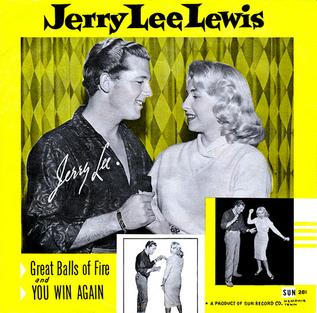
"Great Balls of Fire" is a 1957 popular song recorded by American rock and roll musician Jerry Lee Lewis on Sun Records and featured in the 1957 movie Jamboree. It was written by Otis Blackwell and Jack Hammer. The Jerry Lee Lewis 1957 recording was ranked as the 96th greatest song ever by Rolling Stone. It is written in AABA form. It sold one million copies in its first 10 days of release in the United States making it one of the best-selling singles in the United States at that time.
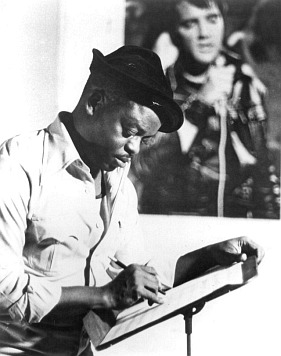
Otis Blackwell was an American songwriter whose work influenced rock and roll. His compositions include "Fever", "Great Balls of Fire" and "Breathless", "Don't Be Cruel", "All Shook Up", and "Return to Sender", and "Handy Man".

"Chantilly Lace" is a 1958 rock and roll song by The Big Bopper. It was produced by Jerry Kennedy, and reached No. 6 on the US Billboard Hot 100. Bruce Channel covered the song on his 1962 album, Hey! Baby. The song was also covered by Jerry Lee Lewis in 1972.
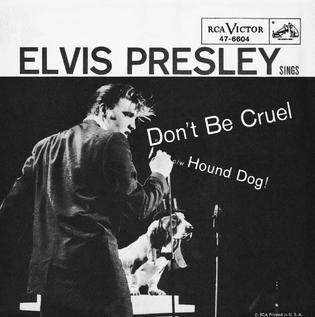
"Don't Be Cruel" is a song that was recorded by Elvis Presley and written by Otis Blackwell in 1956. It was inducted into the Grammy Hall of Fame in 2002. In 2004, it was listed #197 in Rolling Stone's list of 500 Greatest Songs of All Time.

You Win Again is the twenty-eighth studio album by Northern Irish singer-songwriter Van Morrison. It is a duet album with Linda Gail Lewis that was released in 2000 by Virgin Records. The album was recorded at The Wool Hall, Bath, England.

Victim of Romance is singer and songwriter Michelle Phillips's first and only solo album, and was released in February 1977. Despite good reviews, the record was unsuccessful and Phillips then favored her acting career. The front cover photography was by Terry O'Neill.
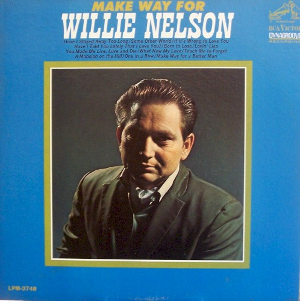
Make Way for Willie Nelson is the fifth studio album by country singer Willie Nelson.

"Here We Go Again" is a country music standard written by Don Lanier and Red Steagall that first became notable as a rhythm and blues single by Ray Charles from his 1967 album Ray Charles Invites You to Listen. It was produced by Joe Adams for ABC Records/Tangerine Records. To date, this version of the song has been the biggest commercial success, spending twelve consecutive weeks on the US Billboard Hot 100 chart, peaking at number 15.
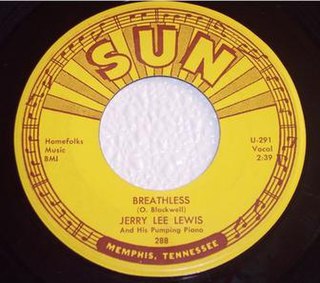
"Breathless" is a song composed by Otis Blackwell. It was the fourth record by Jerry Lee Lewis, whose version was released in February 1958 on Sun Records. It spent 15 weeks on the Billboard Hot 100 chart, peaking at #7 in April 1958. The song also reached #4 on the country chart, #3 on the R&B chart, and #8 in the UK. The B-side, "Down the Line", also charted in 1958, reaching #51 on the Billboard pop singles chart. It was re-released in 1979 as part of the Sun Records Golden Treasure Series as Sun #25 and on the Quality label in Canada in 1958. The song was also featured in the 1983 film Breathless starring Richard Gere and Valerie Kaprisky along with the Jerry Lee Lewis song "High School Confidential".
"It'll Be Me" is a song written by Jack Clement, first released in April 1957 by Jerry Lee Lewis, as B-side to his single "Whole Lot of Shakin' Going On".
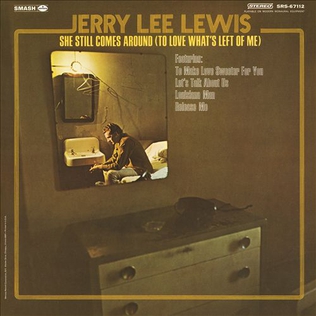
She Still Comes Around (To Love What's Left of Me) is the ninth album by Jerry Lee Lewis. It was released on Smash Records in 1969.

Country Memories is a studio album by the American musician Jerry Lee Lewis, released on Mercury Records in 1977. It peaked at No. 21 on Billboard's Top Country Albums chart.

"Baby, Hold Me Close" is a song written by Jerry Lee Lewis and Bob Tubert and released as a single by Lewis in the U.S. in February 1965 on Smash Records. The song was also released in the UK in 1965 as a 45 single on Philips Records.
"Playing for Keeps" is a song originally recorded by Elvis Presley. Its first release on record was on January 4, 1957, on a single with "Too Much" on the other side. "Playing for Keeps" reached number 34 in the United States, while "Too Much" spent 3 weeks at number 1. In 1959, the song was included on Elvis's album For LP Fans Only.
"Marie" is a song, originally recorded by Cat Mother and the All Night Newsboys on their 1969 album The Street Giveth... And The Street Taketh Away. In the same year it was released on the B-side of the single "Can You Dance to It?".
"How's My Ex Treating You" is a song written by Vic McAlpin and originally recorded by Jerry Lee Lewis, who released it as a single, with "Sweet Little Sixteen" on the other side, in 1962 on Sun Records.
"Another Place, Another Time" is a song written by Jerry Chesnut and originally recorded by Del Reeves.
"Lovin' Up a Storm" is a song written by Allyson R. Khent and Luther Dixon and originally recorded by Jerry Lee Lewis, who released it as a single, with "Big Blon' Baby" on the other side, in 1959 on Sun Records.
"I'm Left, You're Right, She's Gone" is a song written by Bill Taylor and Stan Kesler, and originally recorded by Elvis Presley for Sun Records.
"Roustabout" is a song written by Bernie Baum, Bill Giant and Florence Kaye for Elvis Presley and the 1964 Paramount picture Roustabout. The song also appeared on the soundtrack album for the movie.










